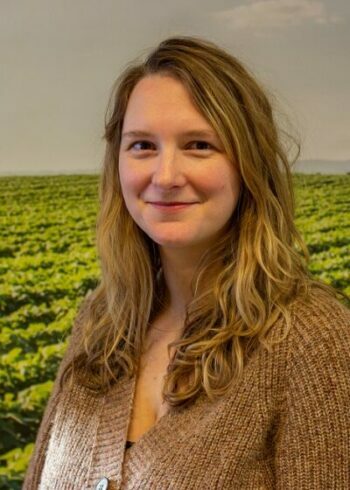Carbon farming is the process of actively increasing the amount of carbon stored in soils. This mitigates ongoing climate change, because it takes carbon from the atmosphere and captures it in the soil. It leverages the natural capacity of soils to store carbon in the form of soil organic matter. Soil organic matter is derived from plant, root and microbial material and can persist in soils for years to centuries and sometimes even millenia (Lutzow et al. 2006).
Soils are largely invisible in our daily lives – yet they are one of the best and easiest ways for a positive impact on climate
Carbon farming and the increase of soil organic matter has a multitude of other benefits, such as increased soil health, water-holding capacity and resilience to climate change (Evans et al. 2015).
Natural Climate Solutions
Natural Climate Solutions involve the actions taken to restore or augment the natural capacity of carbon storage in the reservoirs on our planet. Examples are reforestation projects, restauration of wetlands and of course carbon farming (Bossio et al. 2020).
Carbon farming credits
Carbon farming projects can generate carbon credits for the voluntary carbon market, if three key requirements are met. Firstly, soil carbon stocks need to be quantified in a robust and scientifically sound method. Secondly, additionality must be proven – meaning that for a farm, agricultural practises must be adjusted to maximize the carbon stock. Examples are the reduction of tillage, implementation of cover crops or the improvement of water management. Last but not least, the project must be verified with an independent organisation such as VCS Verra or Golden Standard (Verra VCS VMD0042; Verra VCS VMD0053).
In order to get carbon credits out of carbon farming, farmers must show that they have taken additional action to sequester carbon – business as usual does not suffice.
New technologies enabling carbon farming
Major hurdles exist that hinder carbon farming – such as costly measurements, a lack of knowledge on soil carbon and complicated data compilation. New technologies and smart solutions however can help to overcome these challenges. SoilCASTOR generates robust and cost-effective soil carbon stock estimates using data science, soil-science expertise and state-of-the art measurement technology. SoilCASTOR reduces measurement costs because it leverages satellite data, >100,000 existing proprietary measurements and the AgroCares HandHeld Near-InfraRed HandHeld Scanner. SoilCASTOR can give advice on additionality and how to increase stocks in certain regions by using soil-science know-how in a digital format. Last but not least SoilCASTOR automatically generates the data needed information and data required in the carbon credit certification, reducing the complexity of the application process.
Contact us
We're here to answer your questions and help you to get started with soil carbon monitoring
Contact our carbon stock experts
SoilCASTOR enables to measure accurately soil carbon stock at farm level and is developed by NMI, AgroCares and Wageningen University.
Office
Nieuwe Kanaal 7C, 6709 PA Wageningen, The Netherlands


